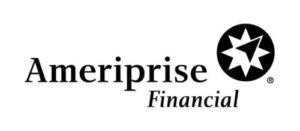
Daniel Theodore Wilson of Auburndale, Massachusetts, a stockbroker registered with Ameriprise Financial Services LLC, is the subject of a customer initiated investment related Financial Industry Regulatory Authority (FINRA) securities arbitration claim in which the customer requested $20,000.00 in damages based upon allegations that Wilson made misrepresentations of material fact and made the unsuitable investment recommendation of exchange-traded funds when Wilson was associated with Ameriprise Financial Services LLC. FINRA Arbitration No. 23-03143 (October 30, 2023).
Many brokerage firms, as a result, have stopped permitting solicited purchases of leveraged or inverse ETFs in traditional brokerage accounts. Many brokerage firms have also required their brokers to complete certain training before they are allowed to sell these products and all such transactions, even unsolicited transactions, are supposedly subject to enhanced oversight and review.
Since that time, securities regulators have taken more than a dozen regulatory enforcement actions against many of the major securities firms for their failure to train, and their failure to supervise their stockbrokers in connection with the sale of inverse or leveraged ETF funds to retail customers.
Unlike a traditional Standard and Poors Index fund, which would be expected to track an S&P index, inverse and/or leveraged ETF funds, also known as “non-traditional ETFs” are designed to accomplish the opposite or inverse. So for example, if the value of an index, the overall market or any particular index of securities within an market industry or subgroup goes down, the value of inverse ETF, or sometimes called a “bear” or “short” ETF, would be expected to go up.
However, both securities are leveraged to achieve these results, and are associated with higher transactions costs as opposed to ETFs which merely track the market. Moreover, because particularly inverse ETF funds reset after each trading period, based upon market conditions.
Unlike a traditional Standard and Poors Index fund, which would be expected to track an S&P index, inverse and/or leveraged ETF funds, also known as “non-traditional ETFs” are designed to accomplish the opposite or inverse. So for example, if the value of an index, the overall market or any particular index of securities within an market industry or subgroup goes down, the value of inverse ETF, or sometimes called a “bear” or “short” ETF, would be expected to go up.
Also a leveraged ETF fund is designed move multiples of the market. So for example, a leveraged ETFs may be 2X or 3X, meaning that if the market or index goes up 1%, these securities could be expected to go up by 2% or 3%, or double or triple the movement of the underlying index.
However, both securities are leveraged to achieve these results, and are associated with higher transactions costs as opposed to ETFs which merely track the market. Moreover, because particularly inverse ETF funds reset after each trading period, based upon market conditions,
These securities are not suitable to be owned as longer term investments or for more than a few trading sessions, particularly in volatile markets. Accordingly, as a general matter, these securities are not for hedgers but are most appropriate for speculators.
These securities are not suitable to be owned as longer term investments or for more than a few trading sessions, particularly in volatile markets. Accordingly, as a general matter, these securities are not for hedgers but are most appropriate for speculators.
The sale of Inverse or Leveraged ETFs are also “Product Cases,” are where “one or more of the asserted claims center around allegations regarding the widespread mis-marketing or defective development of a specific security or specific group of securities.” Outside counsel for Ameriprise, as is customary, is anticipated to spend many multiples of Claimant’s actual losses mounting an otherwise frivolous defense of these claims.
This is not the first time that Wilson has been referenced in a customer initiated investment related dispute concerning Wilson’s conduct in the securities industry. FINRA Public Disclosure shows that Wilson is also referenced in a customer initiated investment related complaint filed on August 29, 2023, in which the customer requested $20,000.00 in damages based upon allegations that Wilson made misrepresentations of material fact about trading in stocks and mutual funds and failed to follow the customer’s instructions during the period that he was associated with Ameriprise Financial Services LLC. This complaint has been denied by the securities broker dealer.
Wilson has been associated with Ameriprise Financial Services LLC in Auburndale, Massachusetts since April 8, 1997.








